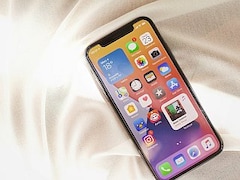- Home
- Apps
- Apps Features
- End to End Encryption a Boon for Terror Groups in India, Claim Experts
End-to-End Encryption a Boon for Terror Groups in India, Claim Experts

"So when you send a message, the only person who can read it is the person or group chat that you send that message to. No one can see inside that message. Not cybercriminals. Not hackers. Not oppressive regimes. Not even us," said Jan Koum, CEO and co-founder of WhatsApp, in a blog post.
The move - coming after the FBI-Apple tussle over unlocking an iPhone used by a terrorist - has not gone well with cyber security experts in India. According to them, this may be a boon for terror groups operating in India and across the border as this ensures that their communications cannot be intercepted as they connect.
"WhatsApp's end-to-end encryption provides more encouragement to terror groups to be more bold in their communications in coded languages which can then be transmitted without the fear of being cracked on the way," warns Pavan Duggal, one of the nation's top cyber law experts.
In a country where WhatsApp has become somewhat of a de-facto religion for the Indian smartphone users, end-to-end encryption will hamper the Indian government's plan to counter terrorism. "Given the fact that WhatsApp does not have an office in India, it further complicates the scenario. The Indian approach on encryption is also not clear. The draft of the National Encryption Policy received massive protests and was withdrawn by the government in 2015," Duggal told IANS.
Experts feel that end-to-end encryption will boost cyber radicalisation to a great extent. Recently, Islamic State (IS) released a technology guide ranking the security of more than 30 chat apps - including WhatsApp, Telegram and Signal.
Reports indicate that heavily encrypted Telegram app - built by a Russian developer - is currently hot among IS supporters, but with WhatsApp starting end-to-end encryption, experts fear that the IS militants - who plotted Paris attacks using WhatsApp and other encrypted apps - may shift base back on to the popular platform.
In the ensuing debate over user privacy vs country's security, experts give security a priority.
According to Rakshit Tandon, consultant at the Internet and Mobile Association of India (IAMAI) and a cyber-security expert, "if a smartphone or any other device or messaging app has been used against the country, law enforcement agencies have all the right to get the information out," he told IANS.
"I will not call it hacking as is being said in the FBI-Apple case but getting the essential information out to nab the criminal and save the country from any possible terror attack," said Tandon, who is also advisor to the Cyber Complaint Redressal Cell (UP Police Agra).
"We need better technology but not something that helps terror organisations in the long run," added Tandon.
Lucknow-based social media analyst Anoop Mishra fears that if we can use it as a major tool for day-to-day communications, the tool can also be used by skilled terrorists or sleeper cells to plan their activities in a more secure and encrypted way.
"This is going to pose more challenges for the national security agencies, especially in countries like India, where terrorism is active in form of sleeper cells and where cyber security policies are less effective and poorly implemented," Mishra told IANS.
Krishna Mukherjee, analyst (telecoms) at market research firm CyberMedia Research (CMR), also feels that end-to-end encryption is a blessing in disguise for terrorists.
"Encryption means maintaining privacy for users but on the other hand, the law enforcement agencies will have a hard time in accessing critical information when dealing with terrorists. Therefore, the need of the hour is to bring some regulations with respect to this," Mukherjee told IANS.
According to the experts, technology companies and the Indian government should join hands in zeroing in on the criminal outfits to help safeguard the national interest.
"The collaboration between the two parties will help in maintaining privacy of users and in securing them too. Although encryption is welcome, it should come with some riders," she adds.
There are no golden principles or formulas and everything will depend upon the peculiar, specific approach to be adopted by state actors as they move ahead.
"End-to-end encryption is now a ground reality. The fact remains how sovereign states try to come up with legal mechanisms and processes to deal with this," asserts Duggal, also a Supreme Court advocate.
"As such, India will need to come up with its own customised approach on how to deal with this," Duggal said.
For the latest tech news and reviews, follow Gadgets 360 on X, Facebook, WhatsApp, Threads and Google News. For the latest videos on gadgets and tech, subscribe to our YouTube channel. If you want to know everything about top influencers, follow our in-house Who'sThat360 on Instagram and YouTube.
Related Stories
- Galaxy S24 Series
- MWC 2024
- Apple Vision Pro
- Oneplus 12
- iPhone 14
- Apple iPhone 15
- OnePlus Nord CE 3 Lite 5G
- iPhone 13
- Xiaomi 14 Pro
- Oppo Find N3
- Tecno Spark Go (2023)
- Realme V30
- Best Phones Under 25000
- Samsung Galaxy S24 Series
- Cryptocurrency
- iQoo 12
- Samsung Galaxy S24 Ultra
- Giottus
- Samsung Galaxy Z Flip 5
- Apple 'Scary Fast'
- Housefull 5
- GoPro Hero 12 Black Review
- Invincible Season 2
- JioGlass
- HD Ready TV
- Laptop Under 50000
- Smartwatch Under 10000
- Latest Mobile Phones
- Compare Phones
- Huawei Pura 70 Pro+
- Huawei Pura 70 Ultra
- Tecno Camon 30 Premier 5G
- Motorola Edge 50 Fusion
- Oppo A1i
- Oppo A1s
- Motorola Edge 50 Ultra
- Leica Leitz Phone 3
- Asus ZenBook Duo 2024 (UX8406)
- Dell Inspiron 14 Plus
- Realme Pad 2 Wi-Fi
- Redmi Pad Pro
- Cult Shock X
- Fire-Boltt Oracle
- Samsung Samsung Neo QLED 8K Smart TV QN800D
- Samsung Neo QLED 4K Smart TV (QN90D)
- Sony PlayStation 5 Slim Digital Edition
- Sony PlayStation 5 Slim
- IFB 2 Ton 3 Star Inverter Split AC (CI2432C323G1)
- Daikin 1 Ton 3 Star Inverter Split AC (FTKL35UV16W+RKL35UV16W)

















